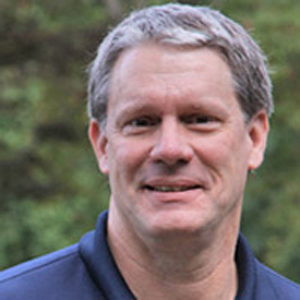
in shaping the outlook of Westminster Theological Seminary (from which “he was resigned” after teaching there for more than a decade), and also having used a baseball analogy (as, knowing Pete, I predicted he would), I decided to sum up this post under the title “Machen League Baseball” (because I love puns, and finally learned how to pronounce Machen’s name tonight, and the pun works).
Pete’s illustration was that the Yankees have a strong tradition. But that doesn’t mean that they can simply play the game exactly the way they did in Babe Ruth’s time. If they did, they would turn their successful tradition into a permanently losing one.
Simply staying the same is never an option, however much some may insist otherwise. Pete talked about the interplay of “form and reform” (drawing on Paul Hanson’s book Dynamic Transcendence). Even within the Bible, we see that something that starts off as a good basis for a solid tradition becomes something that requires challenges from prophetic voices.
 Academic inquiry destabilizes and disorients, while tradition stabilizes and orients. All academic institutions have traditions, and so it is not as though there is an absolute dichotomy. But when the creative tension is lost, or when one rejects the possibility of legitimate critical and scrutiny from peers outside of one’s own institution and tradition, then one arguably is no longer doing research and education, but apologetics and indoctrination. And in that case, offering something that you call a “degree” is false advertising.
Academic inquiry destabilizes and disorients, while tradition stabilizes and orients. All academic institutions have traditions, and so it is not as though there is an absolute dichotomy. But when the creative tension is lost, or when one rejects the possibility of legitimate critical and scrutiny from peers outside of one’s own institution and tradition, then one arguably is no longer doing research and education, but apologetics and indoctrination. And in that case, offering something that you call a “degree” is false advertising.
Tradition and adaptation are two sides of the same coin, and those who claim to have one but not the other deceive themselves and others. And those who claim to offer university-type education while not offering the substance of what that means are deceiving at least others.
 Steve’s talk brought academic freedom and tenure squarely into the picture. Contrary to what is sometimes assumed, that doesn’t mean a license to slack off and do one’s job poorly. It means that one is accountable more to one’s wider discipline than to one’s employer. And that is precisely the point at which the stance of sectarian institutions is directly opposed to the guidelines of the AAUP (and, as an aside, the historic 1915 statement of the AAUP on academic freedom will be fulfilling a century since its publication, and Steve Sanders will be organizing a conference on the subject).
Steve’s talk brought academic freedom and tenure squarely into the picture. Contrary to what is sometimes assumed, that doesn’t mean a license to slack off and do one’s job poorly. It means that one is accountable more to one’s wider discipline than to one’s employer. And that is precisely the point at which the stance of sectarian institutions is directly opposed to the guidelines of the AAUP (and, as an aside, the historic 1915 statement of the AAUP on academic freedom will be fulfilling a century since its publication, and Steve Sanders will be organizing a conference on the subject).
Whatever your views, and whatever team you are on, this event was a thought-provoking and helpful one. Just what an academic event should be, one that gets people thinking and considering views they may not have previously. I’ll let you know when the video from it is available.












